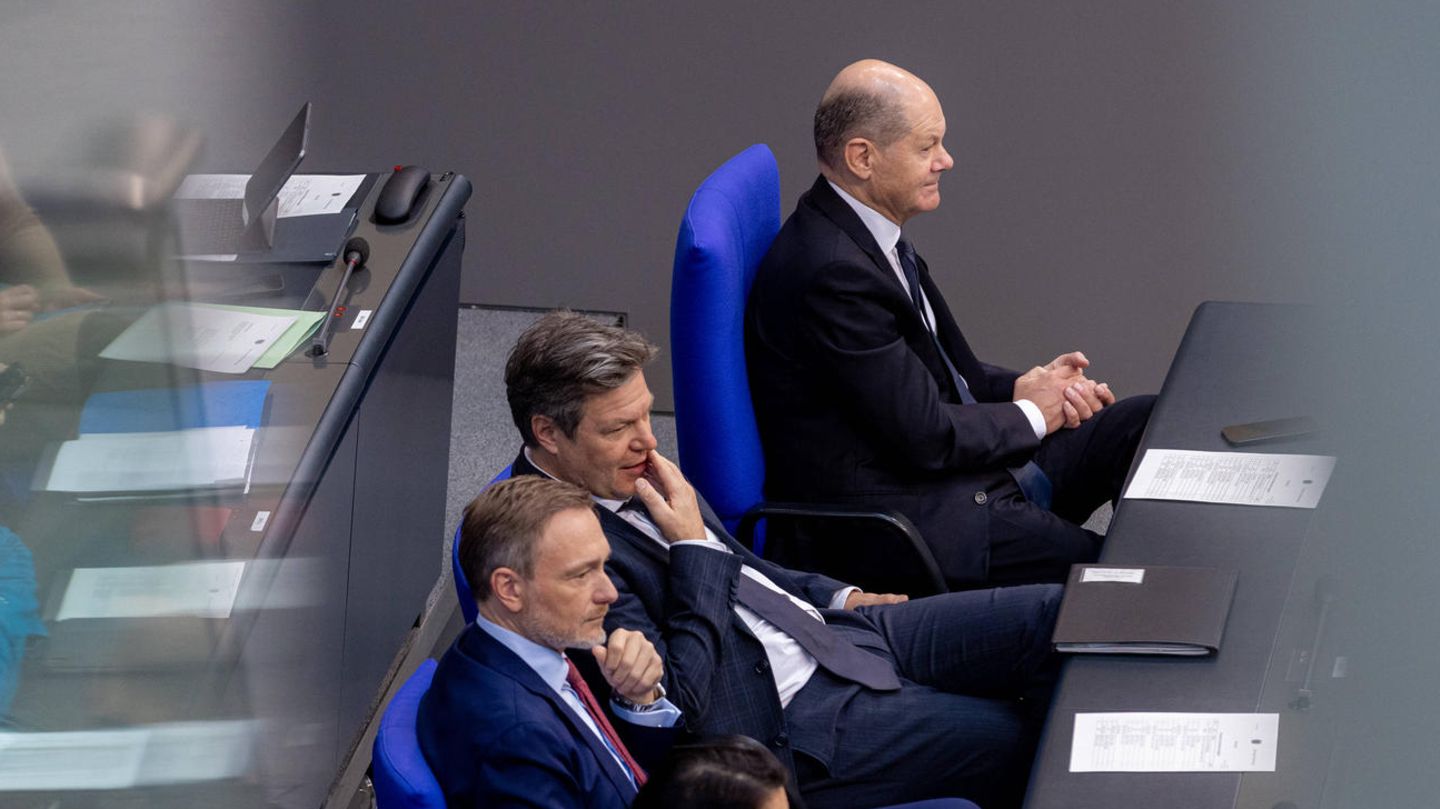analysis
Repeat of the federal election in parts of the capital: A fifth of Berliners were allowed to go to the polls again – small section, big eyes. Because there is reason for unrest, especially for the traffic lights at the start of the important election year 2024.
Berlin has voted, and the day after will show what amazing potential one percent can have. Because only about a hundredth of those eligible to vote in Germany were allowed to vote again in Berlin – but it sent a few clear signals. The AfD can cheer. The CDU may be somewhat satisfied. And the traffic light coalition suffers a defeat that will spark new debates within and between its parties. The government was not elected or voted out on Sunday, but it is by no means heading into the important election year of 2024 with its head held high – it is stumbling helplessly towards the abyss.
It was the first test in an important election year – in terms of the number of eligible voters, Berlin’s by-election was between Bremen and Saarland. So just a small excerpt, but some people in federal politics will still be wide-eyed. For the first time, it was no longer about surveys and sentiment, but about concrete results. And they hold some lessons.
The mood for the traffic lights is even worse than expected
First: The mood for the traffic light coalition is bad, possibly even worse than expected. The SPD and FDP are the biggest losers in Berlin. With around 550,000 eligible voters, the Social Democrats received more than 50,000 fewer second votes in absolute numbers than in the first round of 2021. This means: The Chancellor’s Party has no chancellor bonus, it cannot mobilize its supporters and is far from achieving even close to the 2021 election results to confirm, even though it was already one of the worst in the history of the SPD. Olaf Scholz promised respect in the last election campaign, but respect for Olaf Scholz is dwindling.
Second: The FDP not only lost a lot of votes, but also actually lost a member of parliament. Their share of the vote in the by-election fell well below the five percent mark. This will significantly increase the unrest in the party – especially since the Greens were at least able to maintain their share of the vote, even if they also lost in absolute numbers. If there is another selfie from Christian Lindner and Robert Habeck this Monday, only one of them will have reason to grin.
This confirms in Berlin that the Green Party’s clientele is more lenient with the introduction of their party in the federal government. Green supporters are more pragmatic about concessions in immigration policy, arms deliveries or energy supplies – that’s just how government is. And governing is still better than languishing in opposition.
You obviously don’t see it that way with the Liberals. With the by-election in Berlin, FDP leader Christian Lindner has been thrown back closer to the point at which his sentence: “It is better not to govern than to govern badly” is transformed from a statement into a demand.
Despite demonstrations against the right: AfD is best at mobilizing its voters
Third: The AfD is best at mobilizing its voters. It was the only party to receive more second votes in absolute terms despite lower voter turnout. In the future, when looking at the polls, some observers will no longer have the hope that not all respondents who tell pollsters that they voted for the AfD will actually vote for the AfD in the voting booth. The lesson from Berlin is: you do it. And for the time being they are not stopping any demonstrations, not even an AfD candidate who is in prison. Some AfD voters may even feel encouraged by this because they are demonstrating against a majority society from which they feel excluded, or even from a system that they now reject.
Fifth: The biggest loser is Berlin. The capital has lost four of its 21 mandates so far, three to other federal states and one without replacement. The city has weakened itself with its chaos in the 2021 election. A just punishment, if you will. Only one injustice remains: Michael Müller, who as Governing Mayor was responsible for the 2021 election preparations, defended his mandate in the Bundestag.
Source: Stern
I have been working in the news industry for over 6 years, first as a reporter and now as an editor. I have covered politics extensively, and my work has appeared in major newspapers and online news outlets around the world. In addition to my writing, I also contribute regularly to 24 Hours World.




